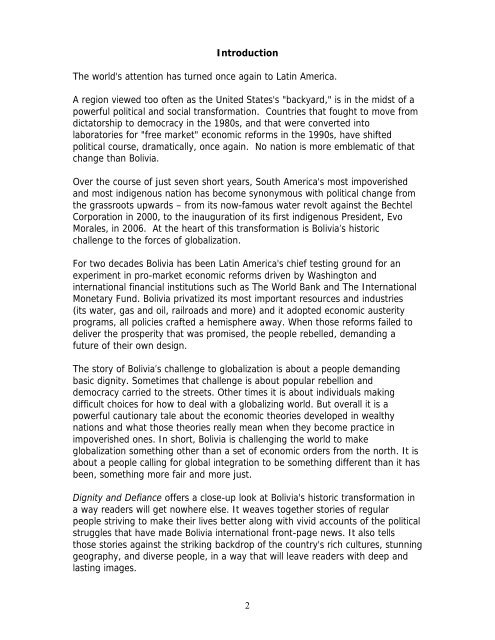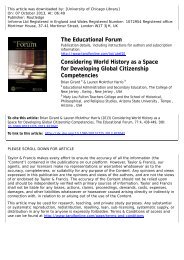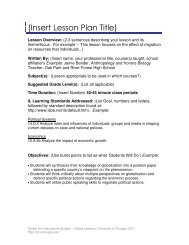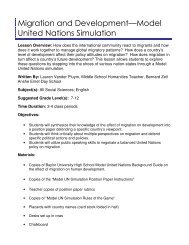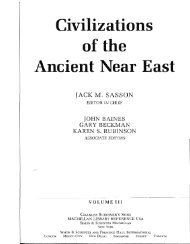Book Summary (PDF) - Center for International Studies
Book Summary (PDF) - Center for International Studies
Book Summary (PDF) - Center for International Studies
Create successful ePaper yourself
Turn your PDF publications into a flip-book with our unique Google optimized e-Paper software.
IntroductionThe world's attention has turned once again to Latin America.A region viewed too often as the United States's "backyard," is in the midst of apowerful political and social trans<strong>for</strong>mation. Countries that fought to move fromdictatorship to democracy in the 1980s, and that were converted intolaboratories <strong>for</strong> "free market" economic re<strong>for</strong>ms in the 1990s, have shiftedpolitical course, dramatically, once again. No nation is more emblematic of thatchange than Bolivia.Over the course of just seven short years, South America's most impoverishedand most indigenous nation has become synonymous with political change fromthe grassroots upwards – from its now-famous water revolt against the BechtelCorporation in 2000, to the inauguration of its first indigenous President, EvoMorales, in 2006. At the heart of this trans<strong>for</strong>mation is Bolivia’s historicchallenge to the <strong>for</strong>ces of globalization.For two decades Bolivia has been Latin America's chief testing ground <strong>for</strong> anexperiment in pro-market economic re<strong>for</strong>ms driven by Washington andinternational financial institutions such as The World Bank and The <strong>International</strong>Monetary Fund. Bolivia privatized its most important resources and industries(its water, gas and oil, railroads and more) and it adopted economic austerityprograms, all policies crafted a hemisphere away. When those re<strong>for</strong>ms failed todeliver the prosperity that was promised, the people rebelled, demanding afuture of their own design.The story of Bolivia’s challenge to globalization is about a people demandingbasic dignity. Sometimes that challenge is about popular rebellion anddemocracy carried to the streets. Other times it is about individuals makingdifficult choices <strong>for</strong> how to deal with a globalizing world. But overall it is apowerful cautionary tale about the economic theories developed in wealthynations and what those theories really mean when they become practice inimpoverished ones. In short, Bolivia is challenging the world to makeglobalization something other than a set of economic orders from the north. It isabout a people calling <strong>for</strong> global integration to be something different than it hasbeen, something more fair and more just.Dignity and Defiance offers a close-up look at Bolivia's historic trans<strong>for</strong>mation ina way readers will get nowhere else. It weaves together stories of regularpeople striving to make their lives better along with vivid accounts of the politicalstruggles that have made Bolivia international front-page news. It also tellsthose stories against the striking backdrop of the country's rich cultures, stunninggeography, and diverse people, in a way that will leave readers with deep andlasting images.2


